Introduction:
Whenever it comes to addressing the divinity of ancient mythical figures and religious leaders, Zeus and Jesus always come to mind. Both stories have stood the test of time and remain embedded in their respective cultures to this day. In a world filled with distinct beliefs and values, it’s essential to understand the associated differences between two powerful figures: Zeus and Jesus. Though each of them has immense powers that are recognized and respected, there still are many differences between them. To understand these differences, let’s take a look at the 10 key points of difference between Zeus and Jesus.
Difference 1: Origin and Backstories
1. Zeus: According to Greek mythology, Zeus was the chief god amongst the Olympians, the ruling deity of the heavens and the Earth. He overthrew his father, Cronus, and is thought to be the “Thunderer”- a weather and storm god. He is said to have been born on Mount Olympus, where he was brought up by Gaia and nurtured further by nymphs.
2. Jesus: Jesus was born in Bethlehem in Judaea to Mary and Joseph. Jesus was a Jew and the descendant of Prophet David, as well as an important spiritual figure in Christianity. He is known to be a healer, teacher, prophet and a savior according to Bible.
Difference 2: Appearance and Attributes
1. Zeus: As per the Greek mythology, Zeus is depicted as a bearded man with a blue-green cape, radiant hair, and eyes that sparkle with life. The god of gods was portrayed with a State like intimidating presence, full authoritative power and absolute control on the Olympians. He was associated with strength, intelligence, and courage.
2. Jesus: Jesus, the Son of God, was generally portrayed as a fair-skinned man with brown eyes, shoulder-length brown hair, and a beard. The image of Jesus is associated with kindness, benevolent attitude and compassion. He was thought to be a peaceful man of character who taught sermon and followed the ways of the God.
Difference 3: Symbolism
1. Zeus: The eagle is considered the primary symbol of Zeus. Many interpreted the symbolism as the power of Zeus to look down from on high and use the eagle to carry out divine judgments. He was also associated with the lightning bolt and oak tree.
2. Jesus: The cross, the fish and the lamb are the primary symbols of Jesus. He is also associated with the star of Bethlehem, a crown of thorns, and a halo or nimbus surrounding his head. These symbols primarily signify either the physical suffering or spiritual suffering of Jesus Christ.
Difference 4: Worshipping Habits
1. Zeus: Worshipping Zeus was common amongst the Ancient Greeks, although they believed that their gods were capable of both good and bad actions. Temples and altars were built in his honour around Greece, and he was seen as a symbol of justice, power, and prosperity. The Ancient Greeks celebrated a yearly festival in honour of Zeus in November.
2. Jesus: Jesus was worshipped in the early Christian church, which was founded upon his teachings and life. Every Sunday, worshipping Jesus was an integral part of the service, with attendees singing psalms and listening to a sermon that discussed Jesus’ teachings. He is also worshipped in the present day, and adherents practice their faith in churches widely, in prayers and private devotionals, and in service to others.
Difference 5: Titles
1. Zeus: Greek mythology has given many titles to Zeus such as, King of the Gods, Lord of the Universe, and God of the Sky. He was also known as the weather god and was believed to control the heavens and earth. Other titles of Zeus included the god of hospitality, the god of justice, and the god of kings.
2. Jesus: Jesus is referred to as the ‘Son of God’, ‘Savior of the World’, ‘Lord and Messiah’, and ‘Lamb of God’. He is also known as the miracle worker, the Prince of Peace, the Bread of life, the Alpha and Omega, and the Good Shepherd. The titles of Jesus focus primarily on faith, justice, and his honourable character.
Difference 6: Nature of Powers
1. Zeus: The Greek God, Zeus, was known to have complete control over the elements of nature, and he could manipulate these elements to his will. He had the great powers to extract lightning and thunder out from the sky and crack storms whenever he desired. He ruled the universe with such powers, and his major weapons were the thunderbolt and the eagle.
2. Jesus: Jesus was believed to possess various power which weren’t limited only to elements of nature but extended to the power of healing, miracles, and divinity. He has shown his great powers by multiplying the loaveys, walking on water and calming storms. Jesus performed several healing miracles such as restoring sight, curing leprosy and raising Lazarus from the death.
Difference 7: Mission and Significance
1. Zeus: According to the mythological tales, Zeus was responsible for the punishment and reward system that was followed by the ancient Greeks. He was also known to be a source of inspiration and guidance. The mythical tales state that Zeus’s main mission was to make sure justice was pursued and protect gods and mortals.
2. Jesus: Jesus was sent by God to Earth to spread the messages of love, peace, hope and faith. He taught his followers that the path to eternal salvation lies only in serving the Lord. He persuaded people to believe in the power of prayer and focus on selfless service to attain salvation. Jesus sacrificed his own life to set humanity free from sin.
Difference 8: Impact on Society
1. Zeus: In the ancient Greek society, Zeus was seen as the leader of the Gods. All other gods and goddesses were under his control, and people revered him for his power and status. His decisions about both Islamic and mortal ought to be respected, and his power was shown in the form of thunder, storms, and any other powerful elements of nature.
2. Jesus: Jesus is believed to be the savior of humanity and his messages are a compelling force on the believers. His impact on the society is immense as he showed a peaceful and loving way of dealing with people. Jesus taught us the virtue of forgiveness, accepting others, and loving enemies, all of which are a reminder of his ongoing significance in our society.
Difference 9: Beliefs and Teachings
1. Zeus: Ancient Greeks believed Zeus to be the all-powerful deity. They worshipped him as the creator of the universe and the ruler of the gods and mortals alike. He was associated with justice, nobility, honour, courage, and power and was the reason for the enforcement of law and order in Greek society.
2. Jesus: As the son of God, Jesus taught the magical power of love, love for the Lord and for mankind. He spoke of hatred, mercy, and sorrow, and stressed the importance of prayer, service and faith. He taught his followers to keep hope alive, nothing is impossible with God, and perfect faith will conquer any sin.
Difference 10: Followers
1. Zeus: Ancient Greeks believed in the gods and goddesses, and the supreme God amongst them was Zeus. He was worshiped by Ancient Greeks and Romans for years, and is still believed by some people today.
2. Jesus: Jesus is followed by billions of people all around the world in various disciplines of Christianity. His teachings and life have inspired millions to pursue and believe in life after death, love all, serve one another and find salvation.
Conclusion
The differences between Zeus and Jesus range from their origins and backstories to their symbols, worshipping habits, titles, powers, missions, and significance to society, beliefs and teachings, and the number of followers. These differences are essential to understand the basis of these two famous figures and their
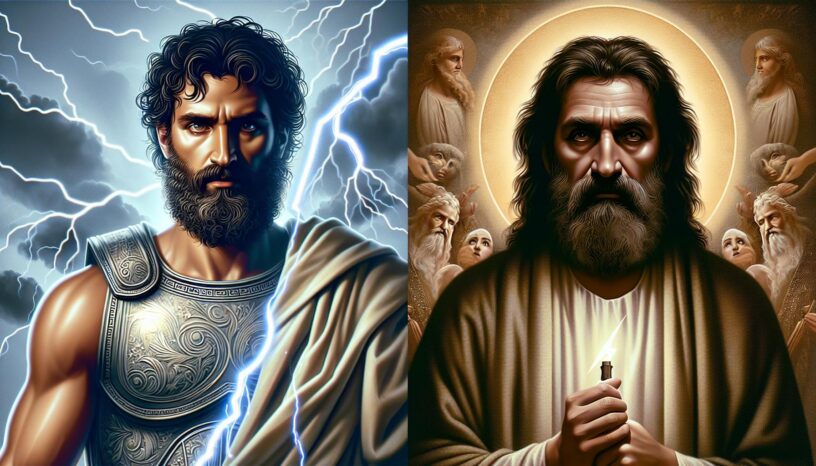
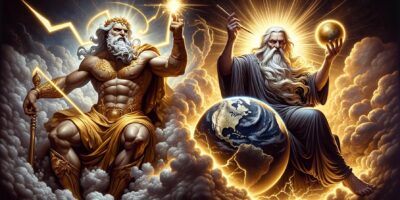
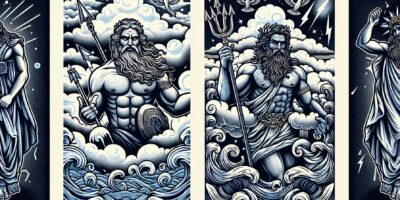
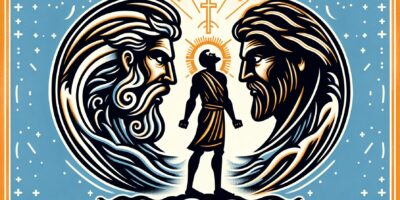

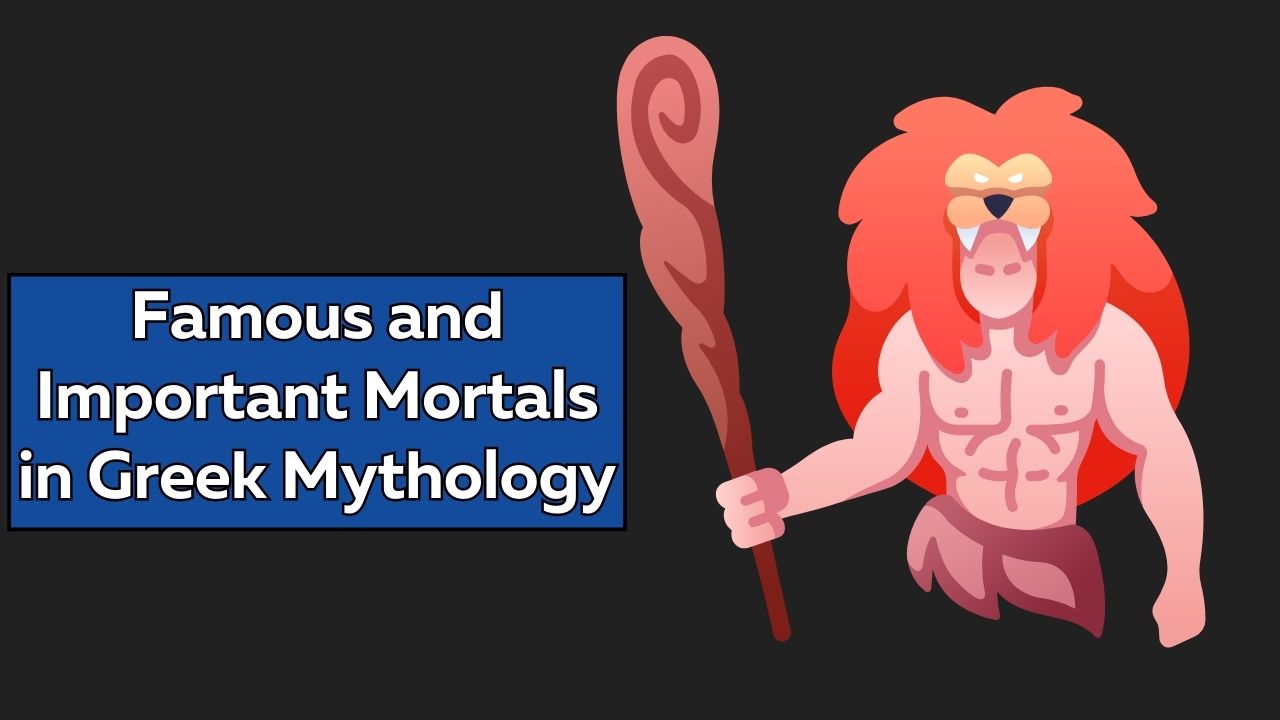

Leave a Reply